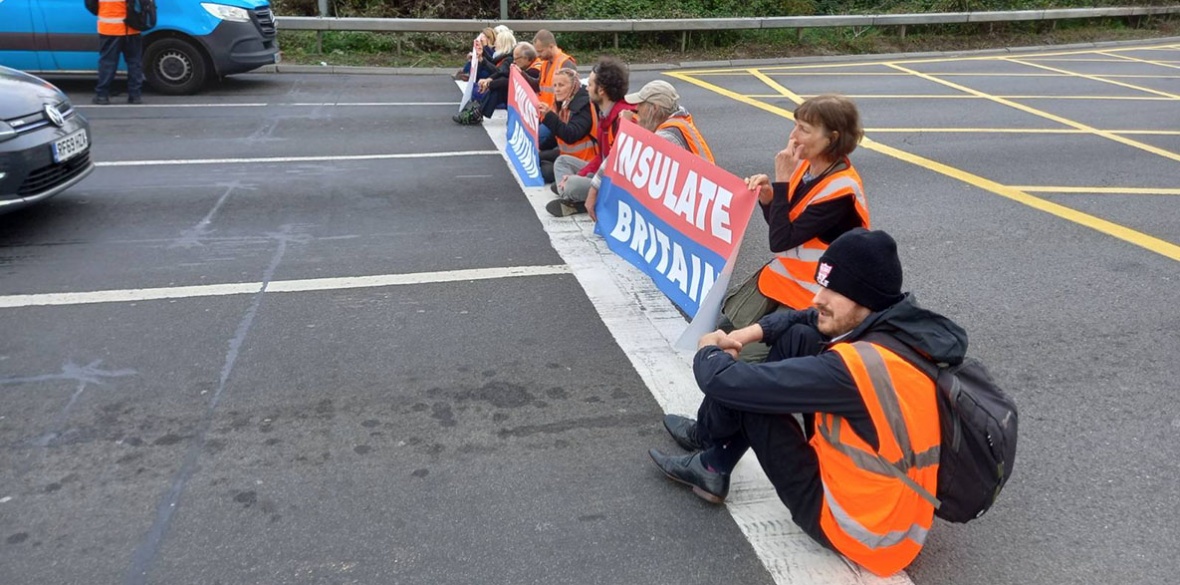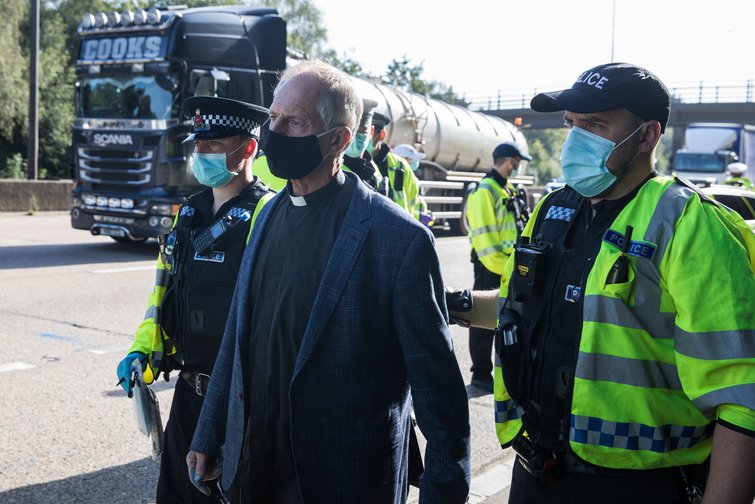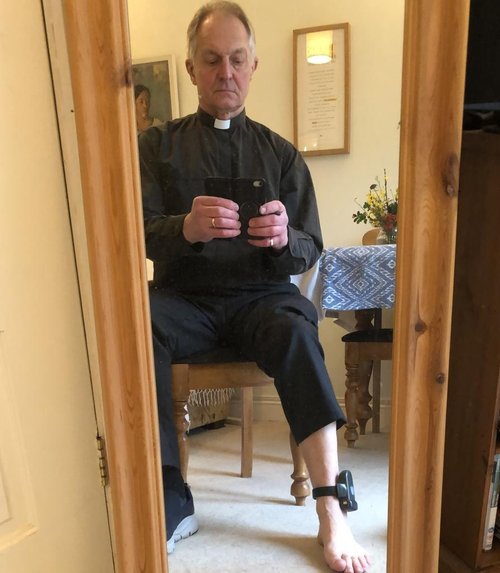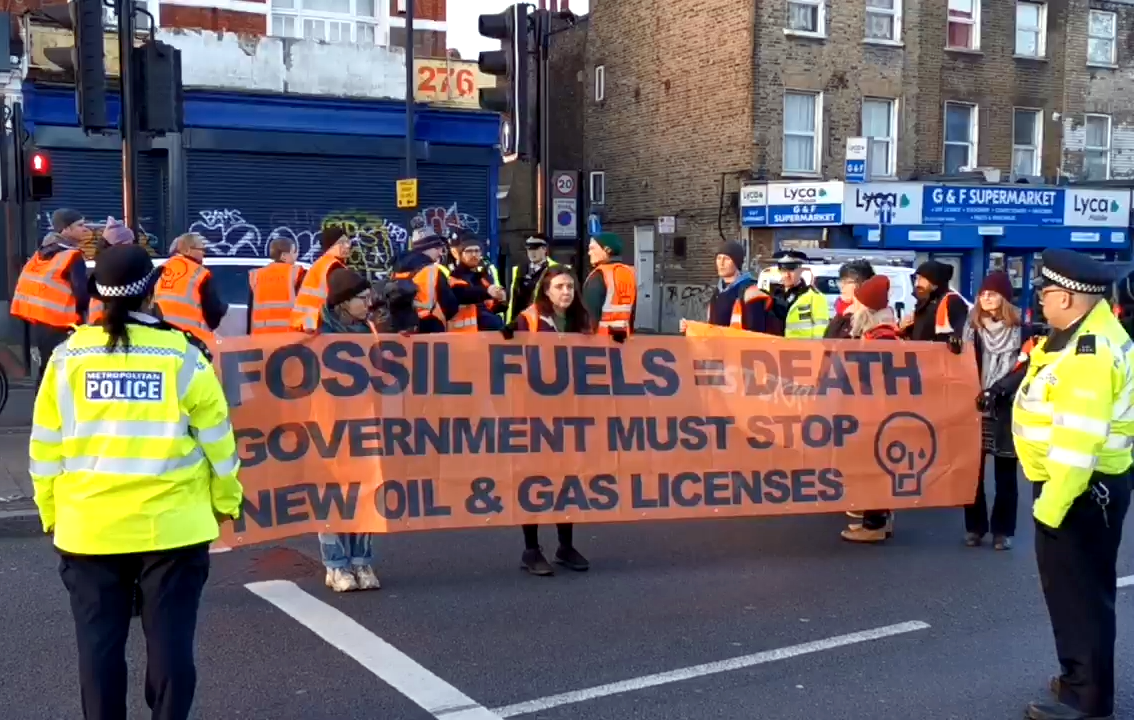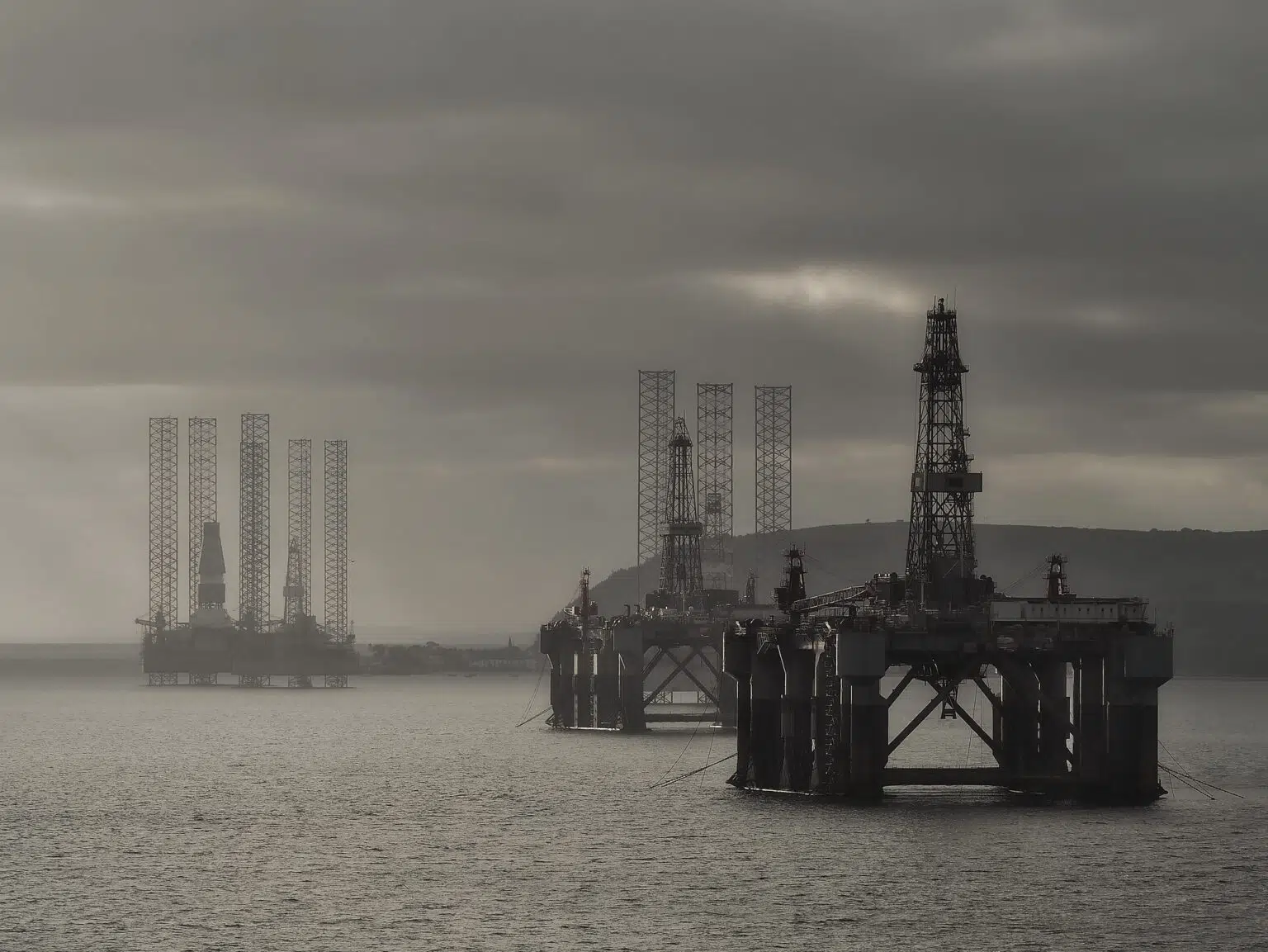Chris Packham gives witness testimony at Just Stop Oil crown court case
TV presenter and naturalist Chris Packham testified at the crown court trial of Just Stop Oil supporter, Cressie Gethin. 14th February was the eighth day of Cressie’s trial for Public Nuisance. She is appearing at Isleworth Crown Court, appearing before Judge Duncan. Cressie, 22, a music student from Hereford, faces up to ten years in prison if found guilty.
Cressie climbed a motorway gantry above the M25 on the 20th July 2022, two days after the governments’ net zero strategy was declared unlawful, and one day after the UK recorded it’s highest ever temperature of 40.3 degrees celsius, a milestone that scientists previously thought was impossible.
Cressie Gethin testified: On 20th July 2022, I climbed up onto a gantry over the M25. I hung up two banners – one said ‘Just Stop Oil’ (the campaign in whose name I was taking action) and the other said ‘40 Degrees”’ (this was a day after the 40C heatwave scorched the UK, burnt down houses and left people dead).
The prosecution have said that my intention was clearly to stop the traffic. However, it is under oath that I say I was not expecting the police to close the entire motorway. I thought it was possible they may decide to close one or two lanes, or perhaps slow the speed of the traffic, but I was very surprised when they closed the whole thing. I was surprised because I was conducting a nonviolent, peaceful protest, the intention of which was to gain media attention and create public pressure on the government to stop new oil and gas.
When the police did close the motorway, I did not immediately come down – you saw that in the footage. As I said, my intention was to get media attention and I realised that the road closure would be attracting more press coverage and therefore more pressure on the government to take steps to protect its own citizens.
I will also address the matter of delays at Heathrow. Whilst this may sound unbelievable, I did not realise that the stretch of motorway I was on led to Heathrow – as I say, this may sound ridiculous, but I am telling the truth under oath.
Because I am bound to the truth, I will also say that, despite not being aware of the location at the time, I do not think that near Heathrow was an inappropriate place to conduct this protest, given that it was there that 40.2C was first recorded the day before, and because of the relevance of air travel to the message I was trying to get heard.
The 20th July was deliberately chosen to be when the temperature was less dangerous and the Met Office’s extreme heat warnings had been lifted. This was in order to remove any risks linked to heat and dehydration for myself and for any members of the public who were in their cars for longer than anticipated.
I also took safety precautions that minimised any risk to myself or to drivers on the motorway. I ensured that there was at least one point of attachment between the gantry structure and the banners at all times. I also wore a safety harness so that I was attached to the gantry at all times. This gantry was enclosed and felt safe (it is designed for human access and is essentially a footbridge with enclosed sides) – but I took this precaution to make sure I was being as safe and conscientious as possible.
I want to make it clear that in no way did I feel a sense of glee or “yes, I’ve won” when the police closed the road. I understood that by closing the road the police would be having to manage traffic that would have otherwise come down that stretch of the motorway, and that didn’t and doesn’t sit easy with me. The reason I didn’t come down goes back to my original intention to get the attention of the media and public, and ultimately, to address rather than ignore injustice and suffering.
There was a moral dilemma involved in taking this action. I knew there was a possibility that the action would impact some people – that is the nature of visible and attention-grabbing protest. I had to weigh this, which doesn’t sit easy with me, against my sincere desire to protect lives. As I said at the beginning, my overall intentions were and still are to create pressure on the government to writing [righting?] policies that are killing people around the world.
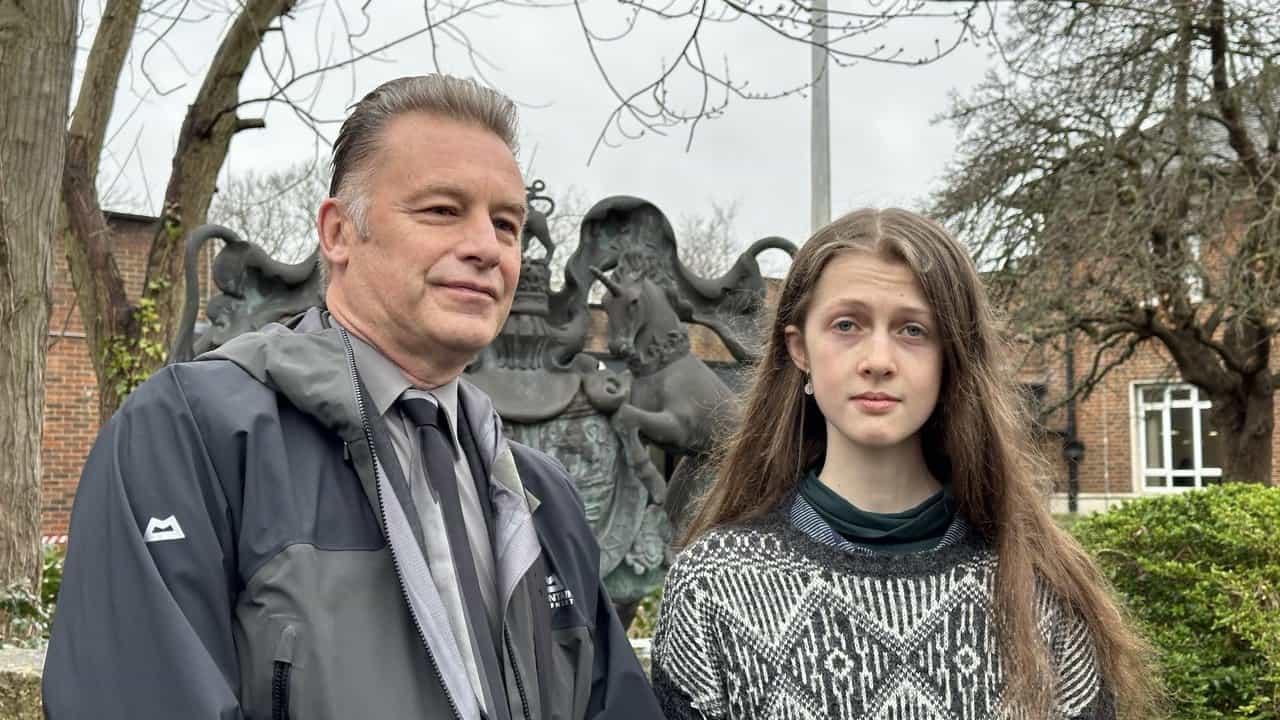
Part of Chris Packham’s testimony:
Prosecution: 26 flights were cancelled.
Chris Packham: As I recall Heathrow was under stress and it had already capped the amount of flights that could leave.
Prosecution: There were over 3000 people impacted, 26 flights delayed and 19 flights cancelled. Do you agree that these people were seriously inconvenienced and seriously annoyed?
Chris Packham: I don’t. It would be difficult for you to apply all of this to Cressie Gethin.
Prosecution: [something about “her” cause]
Chris Packham: It’s not “her” cause – it’s the cause.
Chris Packham: I support the need to raise the alarm on the most serious issue that threatens life and threatens us.
The trial continues.
[sourced from 2 Just Stop Oil press releases]
